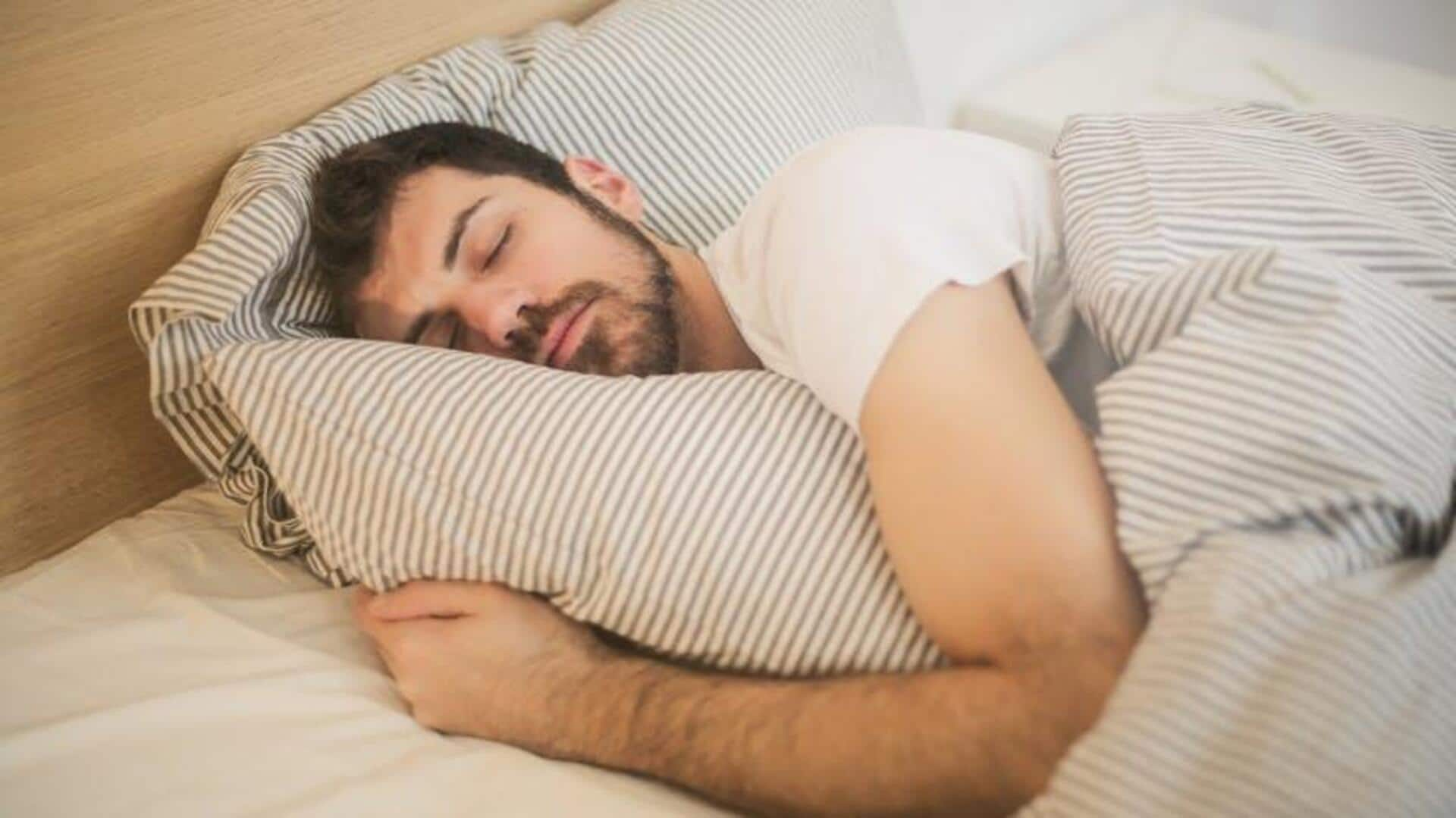
No more sleepless nights! Try these simple hacks
What's the story
Our body's circadian rhythm is the unsung hero behind a good night's sleep, and it plays a vital role in our overall health and well-being. Harmonizing our lifestyle with our body's natural clock can lead to better sleep, improved mood, and increased productivity. So, here are five simple yet effective sleep hygiene practices to help you optimize your circadian rhythm. No pills, no fuss!
Routine
Establish a consistent sleep schedule
By going to bed and waking up at the same time every day, even on weekends, you can significantly strengthen your circadian rhythm alignment. This consistency not only reinforces your body's natural sleep-wake cycle but also helps you fall asleep faster and experience more restorative, deep sleep stages. This regularity is crucial for aligning our internal clock with our daily routines.
Blue light
Limit exposure to blue light at night
The blue light emitted from screens, including smartphones, tablets, and computers, can interfere with your circadian rhythm by tricking your brain into thinking it's still daytime. By limiting screen time at least one hour before bed or utilizing blue light filters, you can mitigate this disruption. This simple change helps synchronize your sleep-wake cycle with your body's internal rhythm, leading to improved sleep quality.
Environment
Create a restful environment
The environment in which you sleep significantly impacts your sleep quality. By ensuring your bedroom is dark, quiet, and cool, you can effectively cue your body for rest. Invest in blackout curtains, utilize earplugs or white noise machines, and aim for a thermostat setting between 60-67 degrees Fahrenheit (15-19 degrees Celsius) to optimize your sleep environment.
Exercise
Engage in regular physical activity
Regular physical activity during the day can significantly improve your sleep quality at night. You'll fall asleep more quickly and spend more time in the restorative sleep phases, which are crucial for physical recovery and cognitive functioning. Just avoid vigorous exercise close to bedtime as it can have the opposite effect by increasing alertness and making it harder for you to fall asleep.
Caffeine
Be mindful of caffeine intake
Caffeine, being a stimulant, interferes with your circadian rhythms when consumed later in the day. By setting a 2 p.m. cut-off for caffeinated items, including coffee, tea, soda, and chocolate, you prevent it from impacting your sleep. This approach keeps your body's internal clock in check, making it easier for you to wind down at night. It improves overall sleep quality by aligning with your body's natural sleep-wake cycle.